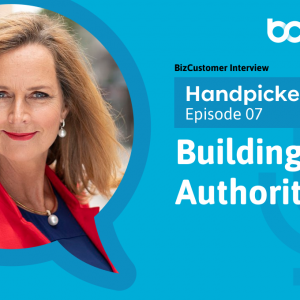What makes a great support worker?
Disability support workers are healthcare professionals who are responsible for providing support to those with disabilities and are most commonly found working in hospitals or nursing homes. Succeeding long-term disability support worker requires that you have a specific set of skills, resilience, and the personal traits that are necessary for providing effective care to others.
As a caregiver, you will also have a knack for planning schedules and for performing under pressure, while also possessing the qualities of a support worker and aged care skills. While not a mandatory requirement, if you are considering a career as a support worker you may consider completing a Certificate III in Individual Support (Disability), or a Certificate IV in Disability.
Before we dig into what makes a great support worker and how to become a disability support worker, it’s worth noting that even support workers face on the job risks, which is why business insurance*, including Professional Indemnity insurance and Public Liability insurance, is recommended for support workers.
What are the traits of great support workers?
Now that we have defined what is a support worker, if you are considering pursuing a career in this field, as well as formal training and business insurance, there are several positive work traits for disability support workers.
So, here are 12 carer skills and traits that you can develop that will help you advance your career as a support worker.
1. Empathy and compassion
Disability support workers should be compassionate and empathetic towards their patients. It means that you should be able to understand their feelings and not make assumptions or judge them. Genuinely caring about others can lead to meaningful relationships that will benefit both the patient and the caregiver.
2. Don’t assume
A successful disability support worker will not make assumptions about their patients. Every person with a disability has unique needs and abilities. It’s important to get to know the person before you give any advice or make any assumptions.
One common assumption is that they cannot or can do certain things. Disability support workers should also avoid making assumptions about someone’s needs based on their diagnosis or their situation. Everyone is different and deserves individual attention and care.
3. Patience
NDIS participant worker skills for succeeding in the role are many, but one of the most important skills to harness is patience. To provide quality care to someone with a handicap, patience and understanding are required. Disability support workers need to be patient in difficult situations and understand that progress is a long process. When working with individuals who require special accommodations or additional help to complete tasks, patience is essential.
4. Positive and encouraging
Disability support workers who are successful can benefit from being positive and encouraging others, even when times get tough. This not only helps create an atmosphere where patients feel supported and safe, but also motivates them. Motivating patients can keep them engaged in therapy or activities.
When you become a disability support worker, remember that positive attitudes are contagious. Having a positive outlook in difficult times can boost morale. It’s rewarding and challenging to work as a disability worker. However, you can benefit from having certain qualities to succeed in this position.
This career could be very fulfilling if you have these qualities. Due to the rapid growth of this industry, there are many jobs available in Australia. Now could be a great time to begin your journey to becoming an amazing disability support worker.
5. Pro-active approach
A great person-centred support worker is one who has a pro-active and positive approach. It is important to plan ahead in order to provide the best support for your participant. You may want to consider mitigating risk and familiarising yourself about how you can manage certain risks.
6. Integrity
Integrity and honesty are two of the most essential requirements for person-centred support workers. All person-centred support workers are expected to be honest, trustworthy and reliable.
7. Flexibility
Life rarely goes according to plan. While as a support worker you may pride yourself on your quality customer service, you also should be flexible. This means that even if your plans change, you will still be able to support your patients.
8. Person-centered approach
Arguably one of the most important independent support worker skills is a person-centred approach, which can be key for supporting NDIS participants in living a fulfilling and happy life. Person centred approaches are all about placing the person that you support at the center of your actions. This means getting to know them, learning about their goals and dreams, and helping them achieve their life’s ambitions.
9. Technical skills
Support workers may need to use technology in order to accomplish various tasks. Computer skills, for example, can help you use different applications or software to manage your patients’ files, schedule appointments, and budget. Some support workers use mobile devices and collaboration applications to communicate with their managers, schedule patient visits and organise priorities.
10. Communication skills
A critically important carer skill for caregivers, or supporter, the ability to clearly communicate with others is crucial. Disability support workers may use their written communication skills when assisting individuals who have hearing difficulties to ensure that patients understand the care plans, schedules, and other important information. Listening to others and understanding different perspectives can also help you develop better care plans and goals.
11. Attention to detail
Another key independent support worker skill is attention to detail. Support professionals often work with several patients, and they coordinate files, schedules and care plans between team members and supervisors. Attention to detail is also required to coordinate medical care with your patients, work with medical providers, and integrate specific health-related plans while caring for patients.
12. Critical thinking skills
Another key carer skill for support workers is the ability to think critically, along with your attention to details, can help you make better decisions. Your critical thinking may impact your performance by helping patients to make important decisions or considering alternative care strategies. Your ability to solve issues and come up with creative solutions can also be influenced by your critical thinking skills. This will help you and your colleagues reach positive outcomes.
When was the last time you reviewed your business insurance?
As a disability support worker it is vitally important to have protection while you help your patients. Whether you are a sole trader, a contractor, or in a NDIS provider role as part of the National Disability Insurance Scheme, investing in Professional Indemnity insurance and Public Liability insurance can be vital for a long and rewarding career.
Make business insurance easy with BizCover
At BizCover we’ve made purchasing NDIS support worker insurance (also known as caregiver liability insurance) fast, easy, and cost-effective for support workers by combining Professional Indemnity and Public Liability into a Disability Support Worker’s insurance package.
Compare competitive business insurance quotes from leading Australian insurers online, get covered in 10 minutes, and get back to helping your patients. Call us on 1300 920 875 to learn more about insurance for your business.
*This information is general only and does not take into account your objectives, financial situation or needs. It should not be relied upon as advice. As with any insurance, cover will be subject to the terms, conditions and exclusions contained in the policy wording. © 2023 BizCover Pty Limited, all rights reserved. ABN 68 127 707 975; AFSL 501769.


